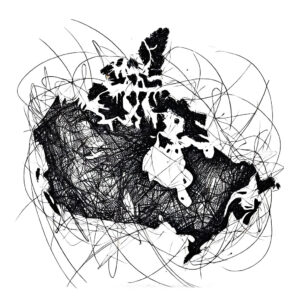Types of Cases at the Supreme Court
Types of Cases at the Supreme Court
The Supreme Court of Canada hears cases that involve important legal questions affecting the entire country. The Supreme Court shapes Canadian society with each decision, be it in subtle ways or on a larger scale.
These cases often involve the Constitution (including the Canadian Charter of Rights and Freedoms), federal and provincial laws, or issues where lower courts have made conflicting decisions. It often rules on topics like criminal law, government powers, Indigenous rights, or individual freedoms (like freedom of expression).
Instructions
Click on the “Turn” button to learn about the Supreme Court’s decision. Use the “<” and “>” arrows to move between cards.
The Supreme Court’s role
The Supreme Court interprets federal and provincial laws. It is often called upon to rule on disputes over whether a law complies with the Constitution, or over how the Constitution should be interpreted. This has a direct impact on current and future legislation.
The Supreme Court has the power to declare a law or government action invalid if it deems it contrary to the Constitution, thereby preventing the law or government action from having any effect. This capacity to review constitutionality ensures a balance of powers by allowing the Court to review the actions of the legislative and executive branches.

Did you know?
Instructions
Answer the question and click the “Check” button.
